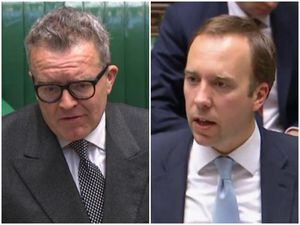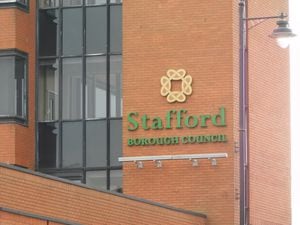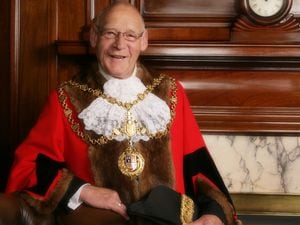Tom Watson scraps anti-press vote amid Labour opposition
Tom Watson scrapped a vote on controversial anti-press legislation amid strong opposition from fellow Labour MPs.

The deputy Labour leader and shadow culture secretary had put forward an amendment to the Data Protection Bill that if enacted, could destroy the free press.
The Section 40 legislation would have required publishers who are not signed up to State-backed press regulator Impress – which is funded by Mr Watson's benefactor Max Mosley – to pay the costs of legal action brought against them, regardless of whether they win or lose.
But minutes before the clause was due to go to the vote this afternoon, West Bromwich East MP Mr Watson decided to drop it.
The Express & Star understands that a number of Labour MPs were not convinced by the amendment, including Wolverhampton MPs Emma Reynolds and Pat McFadden, Warley MP John Spellar and Dudley North MP Ian Austin.
The SNP also refused to back Mr Watson's amendment.
Mr Watson said his decision to drop the Section 40 vote had nothing to do with Labour rebels. He said he would have gone ahead with it had he received the backing of the SNP.
It came as MPs voted down Ed Miliband's plans for part two of the Leveson inquiry into press misconduct by majority of 9.
Express & Star editor Keith Harrison said: "We welcome these important developments in maintaining the freedom of the press in our country.
"The industry as a whole has changed significantly since the initial Leveson report and we agree with the Government that there was no need to take up the second part of the inquiry.
"We are pleased that this proposed legislation has been rejected in the Commons.
"More importantly we welcome the withdrawal of the Section 40 amendment to the Data Protection Bill which could have had serious consequences for local and regional newspapers up and down the land."
After the vote Mr Watson said: "The Tories’ shameless capitulation to press barons leaves the victims of phone hacking ever further from reaching the truth.
"No criminal investigation or trial has ever looked at the core questions that Leveson 2 posed: how the relationship between the press, police and politicians allowed the hacking scandal to happen and attempt to cover it up.
"Today was a chance for MPs to finally deliver on promises made to victims of hacking and press intrusion. That chance has been squandered and victims have been betrayed once again."
Culture Secretary Matt Hancock had warned MPs that the Section 40 measures would have a 'catastrophic' impact on local papers.
He said: "These amendments would have made it near impossible to uncover some of the stories of abuse and including the abuse of all those children in Rotherham."
Mr Hancock said he wanted a free press that can 'hold the powerful to account' but also one that is fair.
"While I want to see a press that is free to report without fear or favour, and to uncover wrongdoing and to hold the powerful to account, I also want to see a press that is fair and accurate too," he said.
"I am determined that we have a system that is strengthened so people have recourse to justice when things go wrong."
He said regulator Ipso had recently brought in a system of 'compulsory low cost arbitration' which means 'ordinary people' can take claims to newspapers for a minimum of £50.
Mr Hancock confirmed that Her Majesty's Inspectorate of Constabulary would be undertaking a review of how police forces were adhering to new media relations guidance, as recommended by Sir Brian Leveson.
He said: "We will not hesitate to strengthen the rules further if that is what is needed."
The Culture Secretary earlier told MPs that the media industry was under threat 'like never before' from fake news and click-bait.
Following the debate, he said: "A great day for a free and fair press. We will work with closely IPSO to make sure their important work continues."





